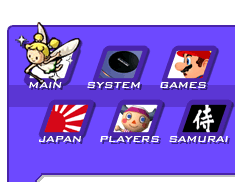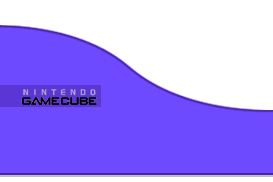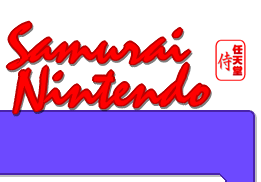Review / Test:
It's about time to review Animal Crossing, and for once, despite what you may think, we're not too late. True, the game first came out five years ago on Nintendo 64. True, the GameCube version appeared in Japan in 2001 and in 2002 in North America. True again, the version we're going to review, is the European one which was released more than a year ago. But in the case of Animal Crossing, does waiting so long make it worse or does it actually make it better ?
You will not meet many games like Animal Crossing, in fact, you might not meet any at all. Everything about it is unique and unusual, beginning with its history. Before migrating to the nascent GameCube, it was a Japan-only game. It took a lot of moaning and a few tantrums before gracing the old European contient. In between, a new spin off title released in Japan (needless to say in Japan only); entitled Animal Crossing e+, it was designed specifically for the e-Reader peripheral.
The popularity of the original title has grown immensely since its release, now a true sequel is finally about to come out on Nintendo DS. The original title though, is an adventure which started long ago, and this accounts for many of its obvious defects, graphics and overall technology for instance, are lagging behind most GameCube titles. But first of all, what is Animal Crossing ? Simply put, it could be summarized as living a life: a simple, restful parallel life.
The game begins when sitting in the train which transports you to a village where you are moving. During the trip, you meet Rover the cat, an inquisitive fellow who will, through his questions, help you to build your identity. As its name suggests, the population ("still growing !") of Animal Crossing is made up of animal persons. You will meet a bunch of different colorful animals, and well... a few curiosities. Being somewhat careless and absent-minded, you arrive in your new village with nothing else than a shirt on your back (also trousers, shoes and a strange hat, AC is not that kind of game !) and nowhere to stay.
Fortunately, Rover introduces you to the local shopkeeper, who is going to prove himself an invaluable contributor to your reckless virtual life. Tom Nook, that's his name, greets you at your arrival and generously provide you with a new home. It's small, empty, a bit gloomy, but it's a start and it won't stay like that for long. However, Tom is not waiting for a handshake in return, he runs a shop, he's a business man, so you owe him straight a large amount of bells, the local currency. Being broke, the unintended debt comes as a shock to you.
But Tom has the solution and another proposition: come to work at his shop to pay back what you owe by helping with different menial chores; it will also be an opportunity to meet other villagers. Of course you accept and your new life, as a member of the Animal Forest community, is officially started. Your pragmatic self is already at work though, as you observe the village is a large square area divided into thirty-six smaller squares with some more or less randomly generated elements, such as trees and houses, so that not all villages look the same from a game to another.
The main reason for it is that you can make your character travel to a friend's village, simply by using a memory card as a locomotion. Every village has key locations that never change: the post office, where you can do a couple of things including, of course, sending mail to your animal friends; the police station, whose purpose is pretty much restrained in such a peaceful province; the wishing well for local events; the dump, to ditch old items or mostly get new ones; the museum, to help building a collection; the shop of the Able sisters, for designing your own patterns to be used in a number of different ways; and, of course, Tom Nook's shop where you buy vital items such as furniture, tee-shirts and umbrellas.
Non-working animals often change, at random, so the current population is another thing very likely to differ from a village to another. Now, you may wonder what's so vital about furniture, tee-shirts and umbrellas ? Well, nothing. Animal Crossing has one particularity which rules them all, it is purposeless, basically you are free to do whatever you want. The only thing you're not so free to do, is to ignore the game. If you put it aside and don't play for too long, friends will forget you, neighbours will move in and out before you have a chance to talk to them, weeds will grow everywhere and other unpleasant things will happen to you and to what, surely, could otherwise become your lovely house.
Such a time-based experience is possible because the game keeps track of the spanning of days thanks to the GameCube's internal clock. Time in the game is like time in the real life: it's dark when you play at night, trees are blooming when you play in spring, and you have a chance to celebrate Christmas and other important events twice in the same day, both in your everyday life and in your virtual village ! And as time affects what we do, it affects also the villagers' actions and speech. Don't expect meeting many people at night, but expect to be asked for candies at Halloween. Celebrations are always a good excuse for villagers to cheer up.
Interacting with your neighbours is a key element in the game, after all, Animal Crossing is officially dubbed a "communication game". It is however a very pompous term, like "life simulation" (or like naming a console Revolution). Conversation are always very one-sided, the dialogues being poorly interactive, nothing so different from any decent RPG. Even though there's supposed to be a lot of written text, four times more than in a traditional RPG according to Nintendo (mind them, they don't really know RPG that well), you will read the sames sentences, exclamations and bad jokes, many, many times, ad nauseam.
Communication is obviously far from being perfect and might determine for how long you will enjoy the game. After hearing the same speeches so often, one's eagerness to play might falter. This situation is aggravated by the mood and courtesy of your neighbours, to be frank, they really lack the latter one. It may be realistic enough to remind you your actual neighbours, but it's hard to figure out what Nintendo was trying to pull out by making so many characters gross and mean. Some of them insult you when you are kind enough to take time for the painful and pointless process of writing them a letter, just because the computer can't obviously make sense of what you're writing. They insult you for whatever reason and this greatly undermines your relation with Animal Crossing. Like the weather changes a lot (sun, rain, snow), so does their mood.
Animal Crossing doesn't play like usual games, being primarily purposeless, you make the rules and decide what you want to do. The problem is, there's not always something to do, and that maybe where the only implicit rule of the game lies: do not play it too much. Some spoil the fun just by overdoing it, trying to get as many things and money as quickly as possible. At this point the game isn't fun anymore, it has become a task. But that's not the way to play it. Animal Crossing is never as good to play as when you want to play it, whether it is one hour or ten minutes, and to stop when you've got enough of it. It is not made to be played for long hours straight, but to be enjoyed little by little, daily or less, like a short-lived pleasure.
How could it be otherwise when the game's main past time is to buy furniture and decorative stuffs for your house ? All come down to collecting and this is also another area that hurts the game badly. You collect insects, fishes, music and items. The only reason why you get money, besides paying back your debt, is once again to buy things for your house. There are only three different activities which are not related to this materialistic obesession: playing NES games (they are considered as items though), pulling out weeds (long and quickly boring), and creating pattern designs (limited but sometimes amusing).
Nintendo should think of changing their formula instead of always recycling their ideas. We were already digging holes in A Link to the Past, we've been fishing in heaps of past games and recently all GameCube titles focus one way or another on collecting (Super Smash Bros. Melee, Pikmin 2...), this is getting tiresome and an example of Nintendo's current creative problem. This is a reason why Animal Crossing falls short to seduce a large part of its audience, not just the hardcore gamer but anyone looking for basic entertainment and variety. Players are not going to have fun just because Nintendo put hundreds thousands lines of boring text, if they want entertaining reading, they're better off with a good book.
Nintendo seems to think it doesn't require more than that at the moment to make good games. How wrong they are ! Animal Crossing received praise but has it really been such a success among players ? How many are still playing it ? How many have grown tired of it faster than they expected ? Probably quite many since the initial number of people who were curious to try out the new concept behind Animal Crossing. The sad truth is you will grow tired of the game much before a year has elapsed and you won't be bothered to check all events, many of them being plain uninteresting or worst of all, insignificant in terms of difference from a normal day.
Who would be interesting anyway in always performing the same actions ? Removing weeds, buying things, cleaning a car, reading the same messages over and over, it's quite far from the definition of a game. Animal Crossing is an interesting concept but not as good as it could have been, Nintendo threw in some ideas and hoped we have fun with them, even though the game lacks constancy and an actual sense besides stimulating our consumer instinct, just like Pokemon Channel did too. Animal Crossing, however charming it is, might have been the first sign of Nintendo's decline. It was, after all, the last Nintendo 64 game and a first step into the GameCube era, when Nintendo's exceptional game design skills have suffered the most dramatic reversal of fortune.
-- sanjuro
R
Samurai Nintendo thinks this game is suitable for everyone (kids over 7, teens and adults)
Players' Opinions:
This game is so cool! Even after you beat it you go back and play it again and again!
-- From beck
I love this game, it rules, and I am a teenager and I love it.
-- From mellie from ca
I disagree. I bought this game when it first came out, and I still find myself obsessing over it. Some weeks I really get into it and play for hours on end. In fact, this is the only game in my seventeen years of gaming that I've played this much over and over. Even though I loved Resident Evil 4 and stayed up 2 days to beat it, I never really went back to it much afterwards. Interesting titles like Paper Mario 2 and Pikmin 1 and 2 are also very cool and are ones I do go back to once in a while. But, the only Nintendo game for Gamecube that I think I'll still be crazy about in ten years is Animal Crossing. Something about its pseudoworld is perhaps indicative of gaming to come and maybe even a precursor to daily virtual lives. That aside playing as a goofy character with throwaway commerce and so on, in a little town where you can plant trees, make friends(and hit them), dig up fossils, interior decorating, and so on, makes for a very unique, deeply relaxing and pleasurable game.
-- From haruki
Pretty fun game overall. Does get boring after awhile. I am stoked about the DS version though. If you are new to the GCN, then pick this title up on purchase of your new best friend.
-- From Big D
This game is awesome! I recommend playing it for anyone who enjoys playing Harvest Moon.
-- From KirbyRox
This is a fun filled game about moving out of your parents house and getting your own place. You decorate your room, meet new friends, buy things and earn money by doing errands!
-- From morgan
Take out the garbage. Do a little landscaping for your boss. Paint the door.... this is supposed to be fun? Emphatically, yes! You've never played a game like Animal Crossing. You will wait in anticipation to see the leaves change color and a new friend move in. There's no way to understand this. Just play it.
-- From Rachel Bostwick









